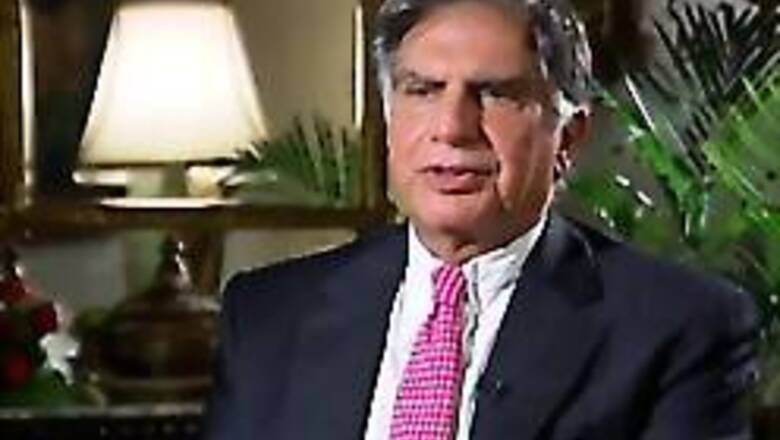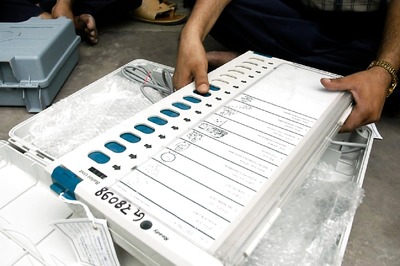
views
New Delhi: Tata Motors Ltd will unveil the world's cheapest car in New Delhi on Thursday. Dubbed the ‘People's Car’, it will sell for about $2,500 and should be in dealers' showrooms by September.
Following are some of the pros and cons that supporters say could revolutionise the transport scene in India.
Safer than a scooter: Indian consumers bought about seven million two-wheelers and one million cars in 2006/07. Tipping the ratio from scooters to cars, and so improving public safety on India's crowded and sometimes chaotic roads, was one rationale for creating the People's Car, according to Ratan Tata, the company's 70-year old chairman: -- "That's what drove me -- a man on a two-wheeler with a child standing in front, his wife sitting behind, add to that the wet roads - a family in potential danger," Tata wrote on the company website.
The price: Retailing for "one lakh", Tata's rear-engine, 4-seater is expected to put automotive ownership within the grasp of the millions of young families who make up the country's aspirational middle class. -- At that price, it will cost less than half the cheapest car on the market now, the mini Maruti 800, and more than double an entry-level 100cc motorbike. -- Small cars, for years the best sellers in India, are being touted as a new global trend, with Renault's Logan entering new markets and India's Bajaj Auto, Renault and Nissan looking into the feasibility of a $3,000 car.
Jobs: The Tata group chief has said the car will be manufactured in three to four locations, including West Bengal and Uttarakhand states. A plant in Singur, in eastern West Bengal state, is expected to employ 10,000 people.
Protests: Farmers and activists staged violent protests at Tata Motor's Singur plant last February, saying local people were forced off prime farmland to make room for the plant. The government says it has compensated most of the affected farmers.
Environment: Environmentalists worry that a car so cheap could lead millions down what they see as the wrong road, with soaring car ownership damaging the environment and locking India into greater dependence on oil.
India imports 70 per cent of its crude oil. -- Indian climate change expert R K Pachauri, chairman of the Intergovernmental Panel on Climate Change, says the One Lakh Car is giving him "nightmares". -- Anumita Roychoudhury, of the Centre for Science and Environment in New Delhi, told The Observer newspaper she is worried that "we'll have a timebomb ticking away. When you lower the price that drastically, how will you be able to meet safety and emissions standards?" -- She also told Reuters:
"It's just not sustainable, whether from an environmental point of view or in terms of congestion."




















Comments
0 comment